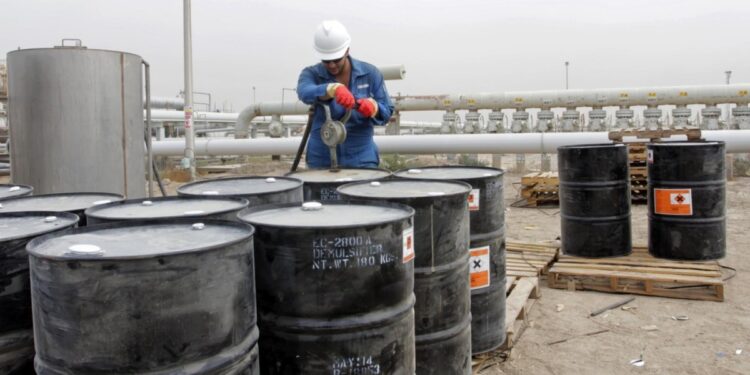Oil prices fell on Tuesday after five straight sessions of gains, as concerns about future oil demand eased after OPEC lowered its forecast for demand growth in 2024.
OPEC’s move eased concerns about supply risks despite rising tensions in the oil-rich Middle East, amid threats from Iran and Lebanon’s Hezbollah to retaliate against Israel.
By 13:23 GMT, Brent crude futures were down 98 cents, or 1.2%, at $81.32 a barrel.
U.S. West Texas Intermediate crude fell 93 cents, or 1.2%, to $79.13 a barrel.
The drop comes after Brent gained more than 3% on Monday, closing at $82.3 a barrel after falling to a 7-month low of $76.3 last week.
Independent analyst Gaurav Sharma noted that while geopolitical tensions, particularly between Israel and Iran, are impacting the market, the continuation of higher oil prices remains uncertain unless oil and gas facilities are directly targeted.
“Oil traders are facing a geopolitical curve due to the possibility of a new confrontation between Israel and Iran. But unless oil and gas facilities are targeted, prices will not continue to rise amid uncertain demand,” Sharma told Reuters.
OPEC’s revision to its demand forecast on Monday highlighted concerns about lower-than-expected Chinese oil imports. The group had been one of the most bullish on future demand, but revised its forecasts in light of these growing concerns.
On the other hand, the International Energy Agency (IEA) kept its forecast for global oil demand growth in 2024 unchanged, but lowered its forecast for 2025, citing the impact of weak Chinese consumption on economic growth.
Despite these adjustments, the potential for escalating conflict in the Middle East remains an important factor, as the United States prepares for potential major attacks by Iran or its allies in the region.
Charalambos Pisouros, senior investment analyst at XM Advisors, said he believed a combination of supply concerns and indications that demand may not be falling as much as was thought at the start of last week could support oil prices in the near term.
“A combination of supply concerns and signs that demand may not be as affected as was thought at the start of last week could help keep oil prices higher for a little while longer,” Pissoros said.
Market participants are also awaiting the US Consumer Price Index report on Wednesday, which will provide an important update on inflation and could impact future economic policies.



